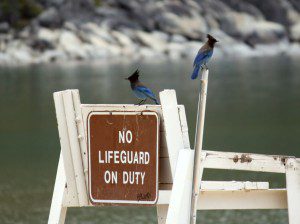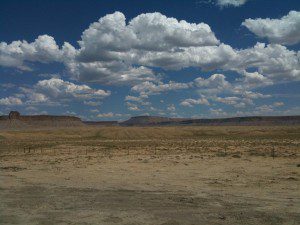 I’ve always loved science, but when it came time to choose a career, I picked engineering. There is great value in simply knowing something, but for me, what’s most interesting is what I can do with what I’ve learned.
I’ve always loved science, but when it came time to choose a career, I picked engineering. There is great value in simply knowing something, but for me, what’s most interesting is what I can do with what I’ve learned.
This is, I think, the main reason I readily accept the reality of Gods, spirits, and magic, despite a strong background in science and logic. I’ve had experiences of them and I’ve done things with them. The fact that I can’t explain these experiences in a way that fits neatly into an atheistic, materialistic worldview is completely outweighed by the meaning, power, and benefit of the experiences.
When you have more than a few of these experiences, you start to notice patterns and trends. Things that work once or twice tend to work over and over again – perhaps not reliably enough to be considered “proof,” but well enough to be useful. Stack enough of these patterns and trends on top of each other and you end up with a model of the way the world works.
This spiritual model of the world does not replace the models created by physics, chemistry, and biology. But we don’t live our day-to-day and hour-to-hour lives by the periodic table. We live our lives by our interactions with other beings and natural processes, and the relationships we form with them.
In a post last week, I called this model deep magic.
Deep magic is the way the world works, not in some quasi-scientific, oversimplified cause-and-effect way, but in the incredibly complex hands-on network of relationships and interdependencies. Deep magic is reciprocity and hospitality. It’s honesty and integrity. It’s the Butterfly Effect. It’s randomness and probability. It’s the unyielding reality of limits. Deep magic is understanding that we can control nothing but we can influence everything.
 Deep magic has its foundation in animism. Animism is the idea that whatever animates you and me also animates the birds and squirrels, the corn and the trees, and even the rivers and mountains. Whatever gives us inherent value and sovereignty gives that same inherent value and sovereignty to everything else in the universe.
Deep magic has its foundation in animism. Animism is the idea that whatever animates you and me also animates the birds and squirrels, the corn and the trees, and even the rivers and mountains. Whatever gives us inherent value and sovereignty gives that same inherent value and sovereignty to everything else in the universe.
Contrast that with the commonly held idea that humans have “dominion” over the Earth and that the value of any non-human entity depends on its worth to humans. The non-human universe is not here for us to possess, control, and exploit. Rather, we are here to relate to the rest of the universe.
Deep magic encourages reciprocity. “No man is an island” – isolated from the rest of the world, we will all die. We are dependent on air and water and sunlight to continue our lives. We are dependent on other species for our food and clothing. We are dependent on other people to maintain the infrastructure of our common society.
How do we manage our dependencies? We can take what we need and want by force and pretend we’re independent. This violates the dignity of others. We can beg for what we need, but this violates our own dignity. Or we can practice reciprocity: “I give so that you may give.” As Kirk Thomas pointed out in his book Sacred Gifts, sometimes this is a quid pro quo transaction, but more frequently it’s an informal arrangement of giving and receiving where no one keeps score but everyone understands they’re doing their part to contribute to the common good.
Deep magic builds relationships. Work closely with another entity (person, animal, God, spirit, ecosystem) long enough and well enough and sooner or later it stops being quid pro quo. It becomes something more: it becomes mutual concern, it becomes friendship, it becomes love. We give not so that we may receive, but because we are genuinely concerned with the wellbeing of another.
Cynics say there is no such thing as altruism – when we give selflessly we’re getting satisfaction in return. I think that argument is irrelevant. Whether we do good because of selfless concern or because of the satisfaction we get, others are strengthened and enriched.
Deep magic involves randomness and probability. If I ask a friend to do a favor for me, he may do it, or he may not. I have neither the power to control him nor the authority to command him. Based on our history, though, I probably have a good idea if he’ll do it or not. I can’t speak with black and white certainty, but I can speak in terms of probability. If I ask a stranger for the same favor, I know the likelihood is much less.
One of Isaac Bonewits’ Laws of Magic is the Law of Cause and Effect. Isaac’s commentary on that law was “Control every variable and you control every change – lotsa luck!” In the laboratory, we can hold most variables constant and control the change on one or two. In the real world, this kind of control is impossible.
When we work magic, therefore, we aren’t controlling or commanding anything. There are simply too many variables involved. As with asking a friend for a favor, we’re influencing the situation. But do enough things to influence a situation and it starts to look like control, even though it’s not.
 Deep magic is bounded by limits. Some things are simply not possible. No spell will bring light to a cave. No ritual will make crops grow in a desert. No visualization will cause you to fly unassisted. No sacrifice will allow you to breathe at the bottom of the ocean.
Deep magic is bounded by limits. Some things are simply not possible. No spell will bring light to a cave. No ritual will make crops grow in a desert. No visualization will cause you to fly unassisted. No sacrifice will allow you to breathe at the bottom of the ocean.
Other things, while not impossible, are so unlikely they might as well be impossible. If you’re deep inside a cave and your light goes out, it’s theoretically possible you can find your way out before you fall into a crevice, but it’s not very likely. When you find yourself up against a hard limit, it’s best to reframe the problem statement. Magic can’t help you walk through a wall, but it can help you find a door.
And when you go caving, carry not one but two backup lights.
Deep magic – a model for the future. The materialistic worldview has led to viewing everyone and everything as things, whose only value is their utility to humans. This approach has brought us technological wonders. It has also brought us climate change, environmental desecration, slavery and oppression.
Deep Magic sees everything as inspirited beings with inherent worth and sovereignty. It sees the world not as a hierarchy of ownership and control, but as a reciprocal network of mutually supportive relationships. And it understands that while we can control nothing, we can – and do – influence everything.
What do you want to influence today?
Note: C. S. Lewis used the term “deep magic” as an allegory for the Christian doctrine of substitutionary atonement, but he was vague enough about it that Christian theologians can’t agree on which version of substitutionary atonement he was advocating. The twisted logic of this doctrine is one of the reasons I’m no longer a Christian. I have no desire to argue Christian theology, but I think “deep magic” is an accurate description of the way the world works, and I think the term is worth reclaiming.
















